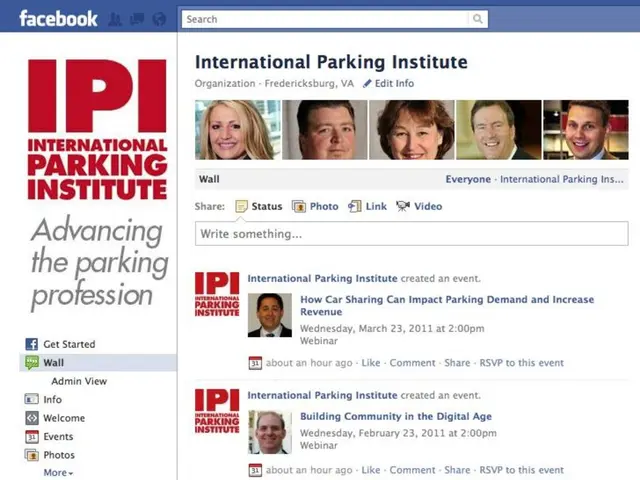Tax Fraud Alert Issued: Counterfeit Tax Notifications Identified by Tax Assistance Organization - Fictitious tax correspondence cautions against fraudulent tax notifications
Fraud Alert: Fake Tax Letters in Germany Masquerade as Legitimate Communication from the Federal Central Tax Office
Impostors are targeting residents of Germany, exploiting a new scam involving forged tax letters supposedly from the Federal Central Tax Office (Bundeszentralamt für Steuern, BZSt). This scheme encourages individuals to pay a fictitious late fee of 350.11 euros for their 2023 tax return.
The deceptive two-page letters boast a legitimate appearance, incorporating official-looking data, case numbers, and even QR codes. However, these letters are counterfeit, according to the Tax Assistance Association of Bavaria. Among the discrepancies, the date on the first page is February, while the second page is stamped with May's date. Crucially, essential personal data such as tax ID numbers are conspicuously absent. The provided IBAN leads to Spain, suggesting an overseas connection.
"Tax offices never demand immediate payment within two days," Tobias Gerauer, chairman of the Tax Assistance Association of Bavaria, emphasized. Genuine letters do not authorize quick seizures and typically include a right of appeal with a one-month deadline.
Recipients should contact their responsible tax office if unsure about the legitimacy of a letter. Warning signs include generic greetings, missing tax IDs, illogical time references, and addresses unassociated with local tax offices.
Recognizing and reporting such fake tax letters poses critical in protecting citizens from financial losses and supporting official efforts to combat this fraudulent activity.
Key Factors to Detect Fake Tax Letters:
- Evaluating the sender's details: Genuine letters from the Federal Central Tax Office are dispatched from verified addresses, including office names such as "Bundeszentralamt für Steuern" and specific postal addresses, like "An der Küppe 1, 53225 Bonn" for CESOP-related correspondence.
- Inspecting questionable content: Fake letters often seek immediate payment, threaten legal action, or promise financial rewards in exchange for advance fees. They may reference non-existent AML/CFT violations or debts and mimic the style of government imposter scams.
- Scrutinizing communication methods: Officially verified letters are unlikely to arrive through suspicious emails, spoofed phone numbers, or unofficial postal addresses. If received by email, verify its authenticity via official BZSt contact points.
- Identifying spoofing tactics: Scammers might use "spoofed" emails, phone numbers, or postal addresses to appear trustworthy, often incorporating publicly available personal information obtained from data breaches. Official tax authorities do not request sensitive banking details or immediate payments through such channels.
- Cross-referencing with official announcements: The Federal Ministry of Finance and BZSt routinely inform the public of ongoing scams and provide guidance. For example, current awareness of fake emails masquerading as those from the Federal Central Tax Office is highlighted on official websites.
How to Report Fake Tax Letters:
- Contact the Federal Central Tax Office directly: Utilize verified contact information available on the BZSt's official website to report suspicious letters. For instance, for CESOP-related matters, the contact is "Referat St III 9 - CESOP, An der Küppe 1, 53225 Bonn."
- Inform the Federal Ministry of Finance: They track alerts about fake communications pretending to be from tax authorities and may provide channels to report scams.
- Contact local law enforcement or consumer protection agencies: If receiving a fraudulent letter or targeted by scams, notifying the police or consumer protection agencies aids in tracking and deterrence of these crimes.
- Preserving evidence: Keep copies of the fake letters, emails, and related correspondence to support investigations.
- The Tax Assistance Association of Bavaria advises residents not to make any immediate payment upon receiving fraudulent tax letters from unknown senders, as the Federal Central Tax Office never demands such expedited financial transactions.
- Understanding general-news about crime-and-justice, it is crucial for citizens to be aware of scams like the counterfeit tax letters circulating in Germany, involving fake late fees and overseas connections, and report these instances to local law enforcement, consumer protection agencies, or the Federal Central Tax Office.




